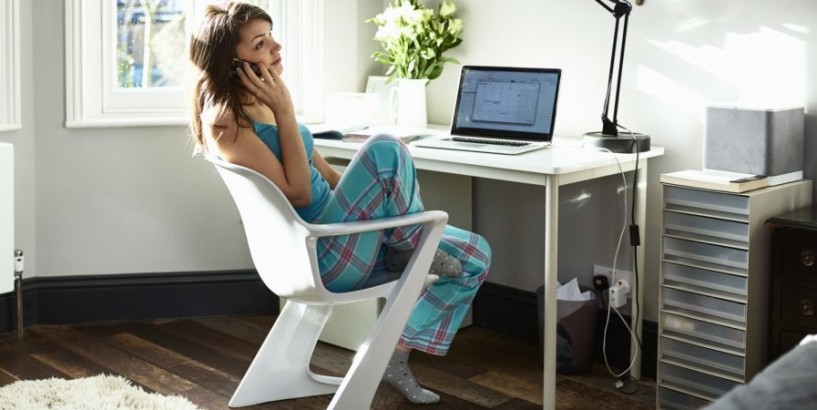If you live alone and are working from home because of Covid-19 or for any other reason, you're in danger of catching one of our society's deadliest diseases: Loneliness . Social isolation has been scientifically shown to be as bad for your health as smoking . So if you're working from home and you live by yourself, you need to keep yourself from feeling isolated. It's an essential part of your self-care, as important as making sure you get exercise and proper nutrition.
Here are some ways to stay socially connected, even if you're working alone at home.
1. Go for a walk, with a companion or alone. In many places these days you can't meet a friend for coffee because restaurants and coffee shops are shut down. But there's a better and healthier way to get together: Ask your friend to meet you for a walk . You should, of course, pick someone who hasn't been exposed to the virus and the two of you should maintain a safe distance from each other.
Even if you don't have someone to go with, getting outside and getting moving is good for you and will help keep your spirits up. You'll get vitamin D from the sun, plus exercise is a known mood booster.
2. Call or text your friends and family. There's a weird phenomenon that happens to most of us when we spend a lot of time alone: We start feeling like other people don't care about us and don't want to talk to us. This often isn't true, but it can feel very real, and it may deprive you of one of the simplest and best things you can do to combat loneliness. So make sure to pick up the phone and call a friend or family member. Or at least text a friend or family member.
The more contact you have with people who care about you and whom you care about, the better off you'll be. Make sure to spend some time doing this every day.
3. Don't use Facebook or other social media to replace real conversations with other people. You probably use Facebook or other social platforms to keep up on the goings-on in your friends' and family members' lives. Most of us do. There's nothing wrong with that and I'm not suggesting that you stop. But it can be tempting to think that interacting on Facebook--reading someone's post and writing a heartfelt comment, for instance--will pull you out of your isolation and replace some of the social interaction you'd have if you were working in an office or hanging out with your group of friends. It won't.
There's ample evidence that high use of Facebook correlates with unhappiness . It's not 100 percent clear why that is, but it does suggest that hanging around on Facebook (or Instagram or Twitter or another social platform) won't give you the kind of emotional benefit that conversing with a friend or family member would. So go ahead and use Facebook if you like, but make sure you do something else to combat loneliness.
(Please note that I'm not talking about chat, voice, or video calls via Facebook and Facebook Messenger. Those are similar to other communication channels such as phone calling or texting.)
4. Make video chat dates. Yesterday, I used WhatsApp to talk to my cousins in France who, like most of the nation, have been ordered to stay home except to buy food or pharmacy items. It was great to talk to them, and actually seeing them made me feel much less alone.
If you're feeling lonely, chances are your friends and family members are too. Your work colleagues may be as lonely as you are. So set up some video chat dates where you all can hang out, maybe with a cup of coffee each. It's bound to make everyone feel better.
If you want to take it a step further, New York Times writer Olivia Judson has joined a virtual co-working group where people get together for two- or three-hour work periods, a coach asks them what they plan to accomplish during the period, and then they all work away, each on his or her own computer. She likes it so much that she's happy to pay for it. Because of time zone differences, the work period comes toward the end of her workday. She writes that it "provides a lift at the moment I am most likely to be besieged by despair." That sounds pretty good to me.
Published on: Mar 17, 2020 Like this column? Sign up to subscribe to email alerts and you'll never miss a post.









